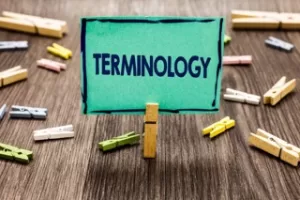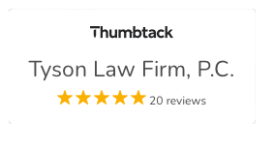“HELP! My landlord just told me I need to be out of my apartment/rental house in 5 days!”
This is, unfortunately, a statement I hear all too often. Tenants who believe they are facing immediate ejection often come to me to find out their rights, and see what their options are. Often they are very scared of losing their residence. In this article, I will attempt to resolve some of the common questions that tenants face in such situations.
Fortunately for tenants, Indiana has laws that prevent landlords from taking immediate action to carry out “self-help evictions.” In most situations where a tenant is living under the terms of a written lease, there are two things that must happen before a tenant may be removed from a rental property:
- The tenant must a receive a “Notice to Quit,” pursuant to I.C. 32-31-1-7. This is a notice required when a tenant falls behind on rent. This notice must inform the tenant that they are behind on rent, and that they must pay the rent in full (including past-due amounts and penalties) within ten days, or face eviction. A Notice to Quit is not required, however, under several circumstances, such as when a tenant is committing “waste” (doing things to destroy the property or bring down its value), when the notice requirement is waived in the rental lease, and other exceptions. You can see all the various exceptions under I.C. 32-31-1-8.
- A landlord must then initiate formal eviction proceedings by filing an eviction lawsuit in the relevant court. The court will set a date for the eviction hearing, at which both the landlord and tenant must appear. The length of time from filing until hearing date will vary by court, but generally an eviction hearing will be held 3-5 weeks after a case is filed by a landlord. A landlord could file an emergency eviction and get a quicker hearing, but the standard for obtaining such a hearing is quite high, and the landlord would need to show that the situation is particularly extreme. If he cannot do so, then the standard eviction process would be used.
Keep in mind that even where a landlord is alleging violations that have nothing to the with the rent, and where, as a result, a Notice to Quit may not be required, the landlord must still use formal eviction proceedings to remove tenants from the rental unit, regardless of what the specific violations were. There is no right to self-help eviction in Indiana.
What if there is no written lease? In that situation, one of two things could happen. If it is clear that you have been living in the rental unit over a period of time and with the landlord’s consent, then most likely a judge will find that you are on a “month-to-month” lease. In that case, Indiana law requires that the landlord provide you with at least 30 days’ notice before terminating the lease and forcing you to leave. Once he provides that notice, he can then ask the tenant to leave without a formal eviction. If the tenant does not leave, that is considered “holding over,” and the landlord would then need to file formal eviction procedures to have the tenant removed.
On the other hand, if there is no lease and it appears that the tenant has been living in the unit without the landlord’s consent, the tenant has a trickier situation. Under such a circumstance, the landlord may demand that the tenant leave immediately.
Contact us if you have any additional questions or need assistance with a legal matter.
NOTE
All legal references are made with respect to Indiana law. Please check the laws of your local jurisdiction if you live in another state.
The articles in this blog are for informational purposes only. No attorney-client relationship is established through the publication of these articles.







